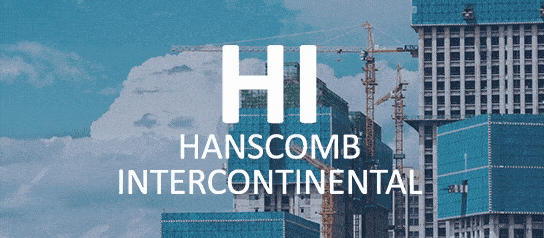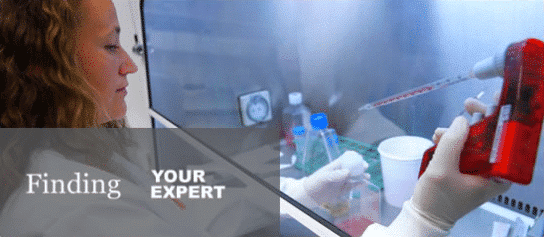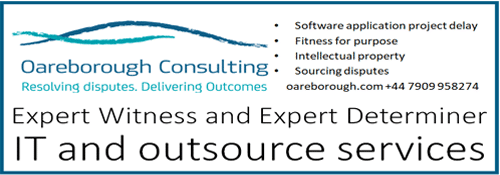If you have thought of practising as an expert witness and wish to explore what is involved, this section is designed to help you. Every practice has elements of their own private language, some of the terms are introduced and explained.

Practising as an Expert
An “expert” is someone who is instructed by the court to prepare expert evidence to assist in proceedings.[1] The lawyers understand the law but need help in understanding what is good practice and procedure in other professions. They may also need help in putting together the evidence to explain what has happened. That is where you come in.
In UK litigation (and in many other jurisdictions) there is an over-riding duty to the court that takes precedence over your duties to the party that appoints you. This may take a little getting used to. The idea is that you are impartial and independent at all times. You are there to explain the issues to the court.
You will be asked to address specified issues, these being agreed between the parties and the court. You are wise to accept and appointment where the issues are within your expertise. Do not be tempted to express opinion outside your expertise, the court takes a dim view of that. In the early stages of working with a client, you may be asked to assist in framing the questions. This advisory role can often lead on to appointment as an expert.
Once appointed, you will be asked to investigate the evidence. You will meet the other side’s expert (if there is one) and discuss the issues to narrow those to be investigated further. You will be asked to write a report of your findings. You must apply good industry practice and to have a current understanding of accepted methods within your profession. The form of the report must follow the rules that apply within your jurisdiction. Your lawyers should point you to these.
The Academy provides training on the procedures, the basics of the law and the requirements of a report. An expert report has a particular form and required content. It must be evidence-based and separate statements of opinion from the rationale on which it is based. You are required to draw upon good industry and professional practice and to present your findings logically so that a non-expert can follow them. Many think this is simple but find it a skill that develops slowly with practice. The lawyers will look for you to make the connection between the evidence and the issues of the case explicit. They will be frustrated and ignore you if you ramble without reaching a conclusion relevant to the case.
Your report will be filed with the court. If the other side has appointed an expert too, you will exchange reports with the other side. On receipt of the other expert’s report, you will be asked to write a second report addressing points of agreement and difference. The other side will do the same on your first report.
You will then prepare for trial and be called to the stand where you will be cross-examined by the other side’s barrister on your reports.
Many cases settle before a judgement is issued. They may settle at any time. Your work will then cease (sometimes unexpectedly). An appointing lawyer will always be aware of the possibility of a case going all the way, even if they expect to settle.
[1] https://www.justice.gov.uk/courts/procedure-rules/civil/rules/part35
The context of practicing as an expert is that of a dispute. This can be stressful. Some would hate to put themselves in such a situation. How well would you cope? It is worth attending court and talking to experienced experts to assess whether you are personally suited before investing too heavily in developing a practice.
You need to be analytical and able to apply your expertise to the resolution of the issues. Equally important, you must be able to communicate your findings and reasoning to a non-expert audience. A good expert clarifies the issues. You must communicate competently in writing and orally. Your appointing lawyers will wish to see you as being confident and competent on the stand, able to stand up to cross-examination. The best proof of this is a judgement favouring your evidence, but we all need to start somewhere. At least initially, project yourself favourably.
It is particularly important to be aware of the assumptions that you are making and to detect those on which the other expert depends. Should facts or assumptions change, so do conclusions. If you are inclined to broad-brush statements and unsupported generalisation, you are likely to find cross-examination an unpleasant experience.
On a large case, you will be presented with a large bulk of diverse information. You must use your professional experience and knowledge of the issues of the case to plan and execute an orderly investigation. Sometimes your guidance will be misleading, witnesses may overlook important aspects or facts. You must be able to make sense of such a situation and present an orderly guide to your opinion and the basis on which it is held. You should consider potential contrary opinions and why one is to be preferred to another. This is no role for the zealot or the bombast.
You must be available to fulfil the appointment. This requires your ability to manage the availability of your time. Small occasional cases may be accommodated in gaps between other commitments. Larger cases are demanding of time. Your contract of appointment must allow such work to be undertaken.
The Academy provides training that includes cross-examination by a barrister so that you may learn and practice in private.
It is likely that in making an appointment, the lawyers will seek evidence of attributes of expertise. Ideally they would want a battle-scarred expert who has handled a case precisely the same as that before them. Such people are not always available. The attributes of expertise that they look for include:
- Academic qualifications;
- Membership and continuing development within a relevant professional institution;
- The demonstration of thought-leadership within the profession (e.g. lecturing, publication of articles, writing recognised texts, speaking at conferences); and
- Practical work experience and knowledge of the issues in the case.
It is also desirable to have completed training from a reputable expert witness organisation such as The Academy of Experts. Increasingly certification is being sought. Lawyers making an appointment invest considerable faith in an expert; a poor appointment can cost them and their clients dearly. The Academy offers a series of training courses and events to give you reliable guidance that keeps you out of trouble and helps you to win follow-on work from satisfied clients. Experts who offend the courts can find themselves censured by judges and sued. Some who suffer this never work as an expert again.
Many professional institutions have special interest groups of those who also practice as expert witnesses. The Academy encourages and supports these, some of which are associated with The Academy.
The resolution of every dispute takes place within a set of rules or norms. You must be aware of these so that you can support the parties by operating within them. Litigation is highly procedural, arbitration and adjudication less so[1]. The Academy Foundation Course training is designed to tell you what you need to know to get started safely. Familiarity with the relevant law and procedure is also likely to help you give a confident impression in interview with appointing lawyers, so helping you win work.
Reputable training will help you not only know what the rules are, but how to apply them in practice. The Academy’s training is designed to be practical and immersive.
Lawyers like to refer to precedent. The rules applying to expert witnesses have developed from experience that has convinced the courts that there had to be a better way. On 12 April 1985 a ship called The Ikarian Reefer ran aground on shoals. There was subsequently a court case heard by Mr Justice Cresswell (as he was then). He found some of the evidence presented to him to be unsatisfactory and established principles in his judgement that later formed the basis of the UK civil procedure rules (and others). You will be taken through this case in your training. It is a favourite trick of barristers to examine expert witnesses on the principles established in the case, so it is worth becoming familiar with them.
The principal rules for civil litigation in the UK are the Civil Procedure Rule of which CPR 35 is the most relevant to Experts. There are variants for use within different courts and jurisdictions. Many jurisdictions follow similar rules.
[1] See the section on Alternative Dispute Resolution
The Academy of Experts has a demanding route to accreditation, believing that this presents the best possible preparation for court and for serving your clients.
Associate
You will be asked to submit your credentials, but these will not be judged. As an associate, you obtain discounted training and can attend events put on by the Academy to assist members. These provide an opportunity to meet practicing members and to build your experience. Most find this useful, encouraging and supportive. This grade of membership is designed to help you to get started and to gain the qualifications for full membership.
Training
The Academy of Experts has a well-developed suite of training courses delivered by practitioners. We are delighted to advise you on a suitable path to build your knowledge in line with your experience.
Practicing Membership
The qualifications for full practicing membership include:
- The submission of references. We ask for the names of three people, preferably Lawyers, for whom you have undertaken Expert work.
- The submission of a copy of an expert witness report. This may be anonymised and must not be from a live case.
- A CV.
- Completed and signed application form.
- A professional qualification (if such exists) appropriate to your vocation and proof of the professional body you belong to (if appropriate).
Training as an expert witness is preferable but is not a strict requirement for admission. Those admitted to membership are eligible to be listed on the Academy’s register. This is often used by lawyers to assess the suitability and to verify the qualification of those they are considering appointing.
Fellowship
Experienced members may apply for fellowship of the academy. Fellowship will be conferred on those who are able to demonstrate an appropriate high standard of professional competence in their profession or calling. Candidates for Fellowship will have wide knowledge and experience as an Expert, Advisor or witness and knowledge of legal procedures and the laws of evidence.
Fellows will have been Full Members of The Academy for at least two years.
For application forms and more on becoming a member, please see this.
Lawyers are often encouraging of new experts but are equally reluctant to place sole reliance of a large case in inexperienced hands. They look for personal references for demanding appointments.
Most learn their craft on smaller cases, supported by training such as that from The Academy. There are directories (some good, some less so) that lawyers appointing for small cases normally turn to. Such lawyers are frequently grateful to have someone (anyone!) who is available, willing and affordable.
Many are content to continue with smaller cases, fitting them in as a small part of their overall workload.
If you wish to be engaged on larger cases, you will need to get to know the solicitors and barristers who practice in your area and who are likely to appoint you. In many areas of practice, these are quite small communities, most of whom know each other. The word soon spreads as to who is good and who should be avoided. Some who have been satisfied will gladly provide a reference that can be used in marketing.
There is a social side to the Academy. Members frequently continue the discussion after an event. This provides an opportunity to compare notes and to learn from the experience of others in marketing and other areas of building your practice. The Academy also puts on events to support you in marketing and other aspects of promoting your practice.




